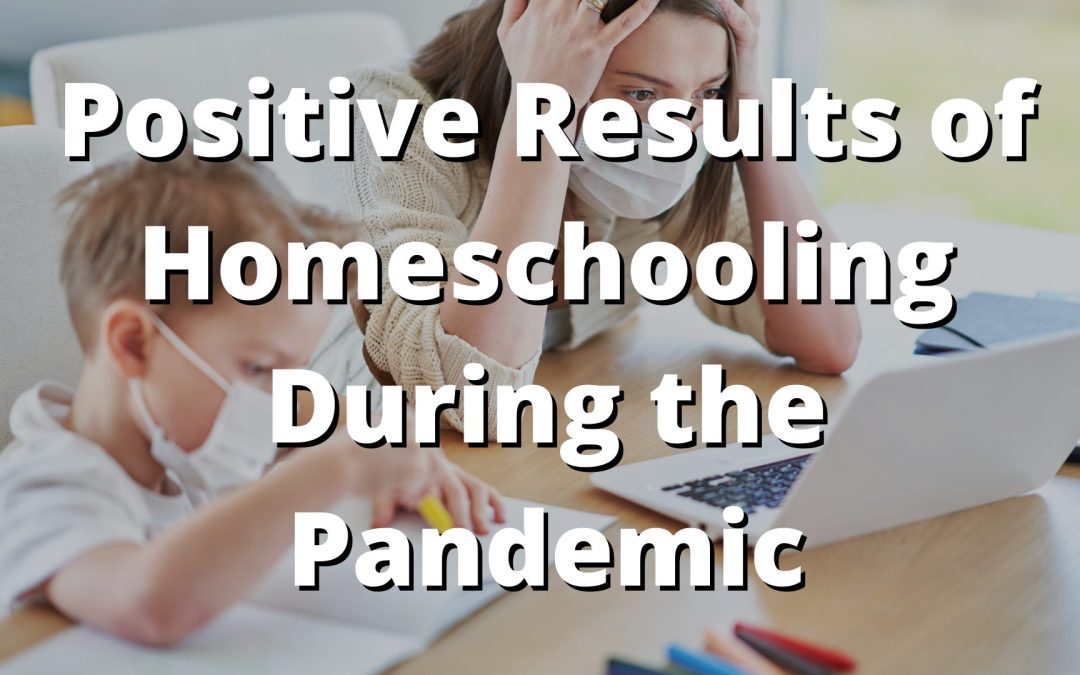THE BIG QUESTION
“Will children homeschooled during the pandemic be scarred for life?” This is one of the questions posed by Carol Polsgrove writing for the Berkely Daily Planet on February 14, 2021. (https://berkeleydailyplanet.com/issue/2021-02-14/article/48995)
The problem is, this is a question plaguing many parents and teachers, and it needn’t be. Yes, many post-pandemic-surge studies offer set-in-stone data that says kids relegated to homeschooling during the pandemic have suffered problems of isolation, depression, separation anxiety, lack of motivation and sometimes even suicidal thoughts. While a certain subset of these conditions may have moved to front page headlines, it is also true that there have been many positive effects of homeschooling addressed in other not-so-prominent venues.
THE TRUTH
Emma Green, a contributor to The Atlantic (https://www.theatlantic.com/ ), pointed out in September 2020 that “COVID-19 is a catalyst for families who were already skeptical of the traditional school system – and are now thinking about leaving it for good.” (Note that the headline for Ms. Green’s article read: “The Pandemic Has Parents Fleeing from Schools – Maybe Forever.”)
What is true is something that Green hit right on the head: “COVID-19 has created a strange natural experiment in American education: Families who would have never otherwise considered taking their kids out of school felt desperate enough to try it.”
Unfortunately, in the K to 12 chaos caused by the pandemic, the data is still out as to whether ANY approach to educating our kids is working very well.
WHAT WE KNOW IS GOOD
For some time, there’s been a discussion in K to 12 education circles and among parents of students, that blasting kids out of bed at 6AM and pushing them through a quick-grab breakfast and getting them to school by 7:45 or 8:15AM is actually bad for them. Sleep deprivation studies would say it is – bad for them. It’s true that kids who don’t get enough sleep are subject to some serious health issues, both mental and physical.
A study by the University of Zurich (UZH) has shown that “Sleep deficits in adolescents can lead to general tiredness, anxiety and physical ailments. These in turn have a detrimental effect on cognitive functions such as concentration, memory and attention, making it significantly harder to function in everyday life.”
So – because kids schooling at home don’t have to report to classes at a set time, they have the chance to get some extra sleep. This is a good thing. In fact, News/Medical Life Sciences publications noted that “School closures in spring 2020 had a negative effect on the health and well being of many young people. But homeschooling also had a positive flipside. Thanks to sleeping longer in the morning, many teenagers reported improved health and health-related quality of life.” (https://healthnewest.com/children/homeschooling-improved-sleep-and-health-related-quality-of-life-for-teenagers/ AND https://www.sciencedaily.com/releases/2022/01/220105111355.htm).
In addition, some studies have shown that the more flexible nature of a homeschool day provides extra opportunities for kids to get out, play, and get more sun exposure.
A January 26, 2021, Norwegian study noted that “Previous research has documented that PA (physical activity) plays an important role in physical and psychosocial health and wellbeing for children and young people. Research has [also] shown that a sedentary lifestyle in students is associated with chronic diseases later in life, as well other health-related risk behaviors such has unhealthy dietary patterns.” (https://www.frontiersin.org/articles/10.3389/fspor.2020.589227/full )
The blog site My Kids Vision recommends that kids should spend at least 90 minutes a day outdoors and should be physically active for at least 60 minutes a day. (https://www.mykidsvision.org/blog/near-and-outdoor-time/ ). This healthy schedule is much more achievable within a homeschool schedule than it is in a traditional classroom situation.
AND THERE’S MORE…
In addition to the potential for more sleep, more physical exercise, and more outdoor time possible in a homeschooling situation, there are other positive contributions inherent in a homeschool atmosphere. Some are traditionally recognized benefits, while others are specific to the COVID-19 pandemic.
Freedom- Homeschooling offers more control and the ability to make individual choices. Homeschoolers can include non-traditional course choices in their school day and have the benefit of being free from the social pressures and bullying atmospheres often found in public schools.
Flexibility- Homeschooled kids can start classes later in the day and have the option of scheduling study time around personal and family appointments and commitments.
Individualized Education- The unique needs of each child can be addressed in a homeschool atmosphere, creating less performance anxiety and giving the student the opportunity to understand his/her individual learning style.
Minimal COVID-19 Restrictions – For many parents, the decision to homeschool during the pandemic came down to avoiding COVID-19 restrictions placed on their children at school. Having to wear a mask all day and social distance from friends creates stress and anxiety that is not present in a homeschool atmosphere.
Strong Relationships-Homeschooling can provide positive experiences such as field trips and family “recess” at the park – all of which can build healthier parent-child and sibling-to-sibling relationships.
Reduced COVID-19 Exposure-Keeping kids at home reduces the risk of their being exposed to COVID-19 and its variants.
LAST WORDS
Polsgrove (Berkely Daily Planet, February 14, 2021) skillfully summed up the positive lessons homeschooled kids have learned from the pandemic: “When NPR asked a former school superintendent to comment on how educators should respond to children returning to the classroom after learning at home during the pandemic, she said something that struck a chord with me. Children ‘have been growing and maturing and thinking’ throughout this difficult time. Some of them have lost more than a classroom: they have lost loved ones. But they have also had a year’s worth of unprecedented experiences living through a pandemic. Schools need to acknowledge the complexity of their experience and their ability to respond to it—and make space in the classroom for them to share what they have learned.”
“I think,” she said, “that sometimes we underestimate the capacity of the human child.”

